A Sustainable Snapshot of Cobh: Local Action, Global Implications S4, E14
- Jackie De Burca
- July 11, 2025
A Sustainable Snapshot of Cobh: Local Action, Global Implications S4, E14
“I just hope all this new development is done well. There’s a huge amount of ambition around Cork—but not enough legislation to measure the environmental impact.” Stephen Barrett
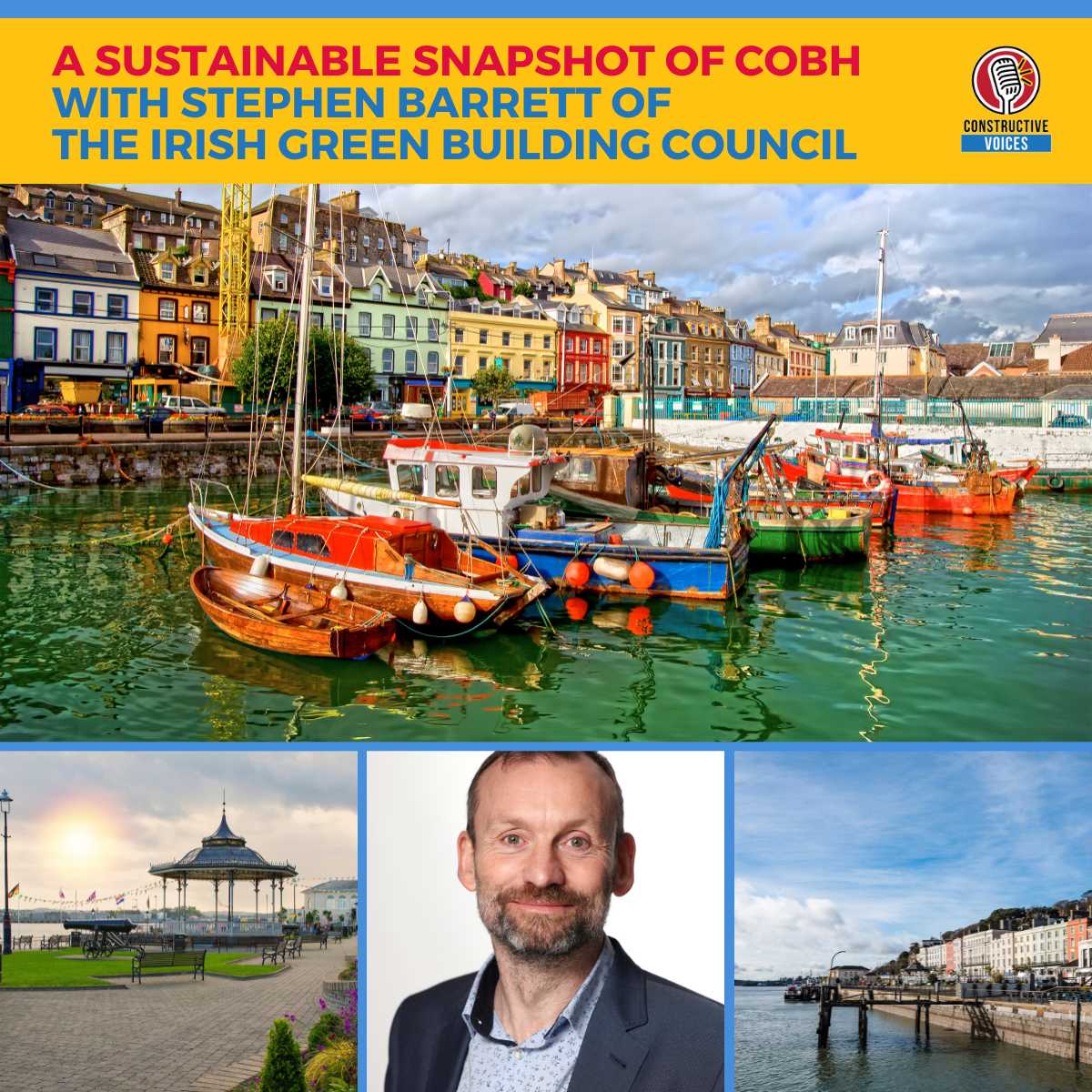
“Cobh is still a beautiful place. The people care and want to do the right thing. But there’s just so much information—it’s hard to cut through.” Stephen Barrett
A Sustainable Snapshot of Cobh: Local Action, Global Implications
Where better than your own home country to start exploring something that is very close to one’s heart? And I believe to lots of people’s hearts when they start to think about it. At Constructive Voices, we’re not only exploring the obvious parts of the built environment.
“In fact, we’re digging a bit deeper. And connecting the people and their places together, because this is what it’s all about.” Jackie De Burca
How the environment affects us every single day with our health in mind, with how our daily activities are able to be conducted. There’s just a whole host of things that our environment brings to us or perhaps makes more difficult for us.
So tune in to Jackie De Burca as she speaks with Stephen Barrett. He’s the program manager for the Whole Life Carbon Programme at the Irish Green Building Council, and he is going to talk to us about Cobh, Co. Cork, which is a picturesque Irish town just outside Cork city.
Stephen has planted his roots there for the moment, and now he questions some aspects of the area, such as development.
Biodiversity, transport and community pride and how this area Cobh and Co. Cork in general can shape a more sustainable way forward. This episode touches on subjects such as underused train lines to cruise ship impacts, and the local lens that Stephen sees on global challenges.
A Sustainable Snapshot of Cobh: Full Podcast Episode
“What struck me moving from the UK to Ireland is how undervalued Tidy Towns is—those people know their place better than anyone.” – Stephen Barrett on the untapped expertise within community-led groups
What You Will Learn In This Episode
The whole-life carbon approach to buildings and infrastructure
How Cobh’s train line could hold the key to more sustainable living
The overlooked power of community groups like Tidy Towns
Concerns over woodland management and local biodiversity
Cruise tourism and its complex impact on small towns
What policymakers should be listening to—and acting on
“We had dolphins last summer… this year, they’re gone. If they came in looking for food, that’s not something to celebrate—it’s something to investigate.”– Stephen Barrett reflecting on changes in marine biodiversity around Cobh
🔗 Resources Mentioned:
Irish Green Building Council – www.igbc.ie
Tidy Towns initiative – Tidy Towns Ireland
Coillte (Irish state forestry organisation) – www.coillte.ie
About Stephen Barrett, Programme Manager for Whole Life Carbon initiatives, Irish Green Building Council

Stephen joined the Irish Green Building Council (IGBC) in 2020 and is currently Programme Manager for Whole Life Carbon initiatives.
He has contributed to several key European and national projects, including Level(s) – the EU framework for measuring the environmental performance of buildings – and the #BuildingLife campaign, aimed at aligning public policy and industry practices with Whole Life Carbon (WLC) goals.
Stephen led the UPFRONTCO2 and INDICATE projects and is currently managing IMPLEMENT, which focuses on mainstreaming WLC approaches.
He holds an MSc in Sustainability and Adaptation in the Built Environment and brings a strong background in data management, analysis, and visualisation.
The Irish Green Building Council’s work on carbon emissions & LCA , includes the lifecycle assessment methodology developed through the INDICATE project and other resources on whole life carbon: IGBC Carbon & LCA Projects
In 2024, during World Green Building Week, the IGBC hosted a tour of Cobh, which really highlighted the role of Tidy Towns and community-led action.
Explore more about this below:
IGBC hosts week of events focused on climate action and nature-positive design
Related Podcasts Not To Miss
Building Climate-Ready Streets, Homes & Transit with Feljin Jose
Building Climate-Ready Streets, Homes & Transit with Feljin Jose Public transport advocate and Dublin City Councillor Feljin Jose joins...
- Ciara O'Brien
- November 12, 2025
Healthcare’s Role in Climate Change with Irish Doctors for the Environment
Healthcare’s Role in Climate Change with Irish Doctors for the Environment The built environment and of course, the environment...
- Ciara O'Brien
- November 9, 2025
Why Nature Credits Matter – With Brian MacSharry, European Environment Agency
Why Nature Credits Matter – With Brian MacSharry, European Environment Agency Unpacking how nature credits could reshape the way...
- Jackie De Burca
- September 29, 2025
What is the European Commission’s Roadmap towards Nature Credits?
What is the European Commission’s Roadmap towards Nature Credits? “When I first saw the news of the EU’s Roadmap...
- Jackie De Burca
- September 28, 2025
Ireland’s Retrofit Race — with Dr. Ciarán Byrne (SEAI)
Ireland’s Retrofit Race with Dr. Ciarán Byrne (SEAI) How Ireland is making homes warmer, cheaper to run, and lower-carbon—at...
- Jackie De Burca
- September 12, 2025
Good News: A New Way To Look At Sustainability & Pocket Forests & Retrofitting in Ireland
Good News: A New Way To Look At Sustainability & Pocket Forests & Retrofitting in Ireland In this uplifting...
- Jackie De Burca
- August 14, 2025
The Energy Performance of Buildings Directive (EPBD): A Game-Changer for European Building Sustainability With Stephen Barrett of the IGBC
The Energy Performance of Buildings Directive (EPBD): A Game-Changer for European Building Sustainability With Stephen Barrett of the IGBC,...
- Jackie De Burca
- July 25, 2025
Greening Ireland: From Pocket Forests to Native Woodlands With Catherine Cleary,S4, E11
Greening Ireland: From Pocket Forests to Native Woodlands With Catherine Cleary ‘Greening Ireland: From Pocket Forests to Native Woodlands...
- Sarah Austin
- June 2, 2025
Life Inside Cloughjordan Ecovillage – A Blueprint for Sustainable Community Living – Podcast Episode: S4, E6
Life Inside Cloughjordan Ecovillage – A Blueprint for Sustainable Community Living Life Inside Cloughjordan Ecovillage – A Blueprint for...
- Sarah Austin
- March 24, 2025
S3, E5 Dr Ciaran Byrne, Director, S.E.A.I. on Ireland’s Retrofitting Success Stories, Challenges & Opportunities
S3, E5: Dr Ciaran Byrne, Director, SEAI on Ireland’s Retrofitting Success Stories, Challenges and Opportunities In this enlightening episode...
- Jackie De Burca
- June 11, 2024
A Sustainable Snapshot of Cobh: Local Action, Global Implications Full Transcript
Please note that this is digitally generated and may contain some errors.
Jackie De Burca: Where better than your own home country to start exploring something that is very close to one’s heart? And I believe to lots of people’s hearts when they start to think about it. At Constructive Voices, we’re not only exploring the obvious parts of the built environment.
In fact, we’re digging a bit deeper. And connecting the people and their places together, because this is what it’s all about. How the environment affects us every single day with our health in mind, with how our daily activities are able to be conducted. There’s just a whole host of things that our environment brings to us or.
Perhaps makes more difficult for us. Now I’m with Stephen Barrett. He’s the program manager for the Whole Life Carbon Programme at the Irish Green Building Council, and he is going to talk to us about Cobh, which is a picturesque [00:01:00] Irish town just outside Cork. Stephen has planted his roots there for the moment, and now he questions some aspects of the area such as development.
Biodiversity transport and community pride and how this area Cobh and cork in general can shape a more sustainable way forward. We’re going to chat about subjects such as underused train lines to cruise ship impacts, and the local lens that Stephen sees on global challenges. Let’s dive in. I’m delighted you’re here at me today.
I know you’re super, super busy, so thank you for taking the time. Would you like to introduce yourself to the audience?
Stephen Barrett: My name’s Stephen Barrett. I am the program manager for whole life carbon projects at the Irish Green Building Council that looks at carbon in the built environment, not just in energy, but in materials and construction and demolition to.
Jackie De Burca: And what about a little bit of background, uh, geographically, Stephen, because I had a lovely research conversation with you [00:02:00] a week or two ago and you’ve, you know, you’ve got an interesting geographical background. ’cause this particular episode is about the place that affects you at the moment.
Stephen Barrett: Yeah, so I moved to Cobh four years ago.
Cobh, as you said, is 20 minutes on the train outside Cork City. Like a lot of people. During the pandemic, our lives were thrown up in the air and the pieces landed completely differently. I started the pandemic in a small flat in London, spent a lot of it on the west coast of Ireland with my parents trying to keep them in the house when they were supposed to be staying home.
And then when we were all allowed out again, my wife and I found we didn’t really want to go back to London. So we looked around. For a new place to live and, and we settled on. Because it just seems to have everything we are looking for.
Jackie De Burca: Fantastic. And it’s somewhere I’ve been [00:03:00] decades ago. Obviously I’ve been based in Spain a long time now, so haven’t been there for a long time.
But it’s postcard prettiness. Yes,
Stephen Barrett: yes. The other kind of convenient things about it was I could still get back up to the West coast to see my mom. And my wife could hop on a boat over to Bristol to see her family. So all very carefully triangulated. And it’s on a train, it’s on a train route, straight into co city.
Jackie De Burca: Fantastic. So it’s ticking a lot of boxes obviously for, for yourself and for your wife. Let’s talk about how are things there at the moment in terms of the kind of topics that we’re really interested in, the likes of biodiversity and carbon related, everything that really comes back down to climate change.
Trying to work towards net zero biodiversity, all that type of stuff. What’s good about in that sense, Stephen,
Stephen Barrett: what’s good about it? Probably what’s good about it from a national. Perspective is the skinny nature reserve, which is about a 20 minute walk from my front door, which just has [00:04:00] a fantastic array of bird life in it.
I’m not an expert on that, but what I understand from people in the area who are, it’s just an amazing resource to have on our doorstep, I think from a development point of view. Cork city and its surroundings are due to undergo massive redevelopment in the next decade. There are new train stations going in, leading into Cork City and heading Eastwood.
So there’s massive investment there. There’s a new road going into Ring, a Skiddy. I think there’s a lot of questions that haven’t been answered about how the implementation of them is going to affect biodiversity and emissions, so it’s something that’s in the pipeline. There’s a huge amount of ambition around Cork City right now.
I’m not so sure that the environmental impacts of it are being quantified, partly because we. Legislation in place to require that. So it’s going to be an interesting few years, I think.
Jackie De Burca: [00:05:00] Definitely going to be an interesting few years. And I suppose what comes into mind, you know, as an Irish person is for a lot of our audience, or you know, it’s a global audience and it’s probably important to tell those people that you’ll know this because you’re, you’re based there for years now, cork would be like sort of the other capital of Ireland, unofficially, wouldn’t it?
Stephen Barrett: Yeah, unofficially. Yeah.
Jackie De Burca: Well, I think cork people would, you know, there’s a huge kind of pride isn’t there with time? Well, there is a fantastic
Stephen Barrett: pride in it. Yes. Yeah. It is a really buzzy city. I’ve heard kind of people in hotels welcoming people and just introducing cork as the capital, the real capital. I hear that a lot.
So yeah, there is, there is a great local pride and I think the development that’s in the pipeline is really going to show that and I, I just hope it’s done well.
Jackie De Burca: Okay. So I mean, of course we have to like watch that space and there is, from what I can see with the people I’ve spoken to and online as well, there’s a lot of.
Brilliant work happening [00:06:00] already in Ireland around biodiversity, isn’t there? Yeah. So let’s go to your own sort of expertise and how do you feel with your own expert hat on about those type of things in Cobh and further field in Cork?
Stephen Barrett: My expertise is in looking at life cycles of buildings, not just how we operate them, but.
And what the pros and cons of what they’re made of, both for the occupier, but also the environmental impacts of those things. So from a professional point of view, I really want to see good choices. By good choices, I mean thoughtful choices on the right materials for buildings from an ecological as well as a user perspective, and not just cost from a durability perspective.
Again, not just cost. I think one thing that we’re seeing now is this idea of not just lifecycle assessment from an environmental point of view, but a lifecycle costing rather than just [00:07:00] capital costs. Mm-hmm. So I want to see more care taken in the planning process in order to get long-term benefits from all of this new infrastructure that’s currently just on drawing boards.
Jackie De Burca: So honing in on Cobh in particular, Stephen, what do you see that’s good about Cobh when it comes to sustainability?
Stephen Barrett: I find it remarkable how underused the train line is. It’s every half an hour. It was really fundamental to my wife and I choosing to live here. She doesn’t drive, so we had that kind of.
Initial thought of, we’ll find a nice place in the country, and then obviously reality kicks in and you think, well, no, we need, I can’t be driving everywhere. So we looked for a small town Cobh, was it? People just don’t look at the rail connection as much as they should. There’s this automatic assumption that you jump in your car and you head into town.
But it, it is just sitting there every half an hour. [00:08:00] It’s, it’s just like the strongest resource in the town, and it is underused and undervalued. I’d really like to talk to the council about how they can promote it as, as the way. Rather than a way to travel between the town and the city. That to me has the knock on effect of then, you know, the town doesn’t fill up with cars.
I find not just Cobh, but, but every town in Ireland now is just jammed with cars and. People complaining about it being jammed with cars whilst bringing their own car to the party. So I,
Jackie De Burca: I know it’s a slightly cultural thing and when I go back to Dublin, I certainly find it a bit challenging now to drive in the city.
Not that I want to drive, you know, but having to drive for hospital appointments and stuff like that that was going on when I was last back over there, it is quite chaotic and. I am in a similar situation where I’m based in Spain, Gandia into Valencia every single half an hour. And a lot of people [00:09:00] use it here.
Stephen Barrett: Yeah. I don’t know if it’s, I don’t know what it is, if it’s just kind of, is it the climate? Is it the assumption that it’ll be raining so I’ll just run into my car? Maybe therefore that becomes a habit, you know, of strolling down to the train station. I dunno. But yeah, it’s definitely cultural individuality of the car.
The idea that everybody has to have. A car rather than just some cars being available for everybody. It would just make the built environment in the town, not just this town.
Jackie De Burca: Back to some of the things that we spoke about on our research call. You talked about your local Woodlands as well, didn’t you?
Stephen Barrett: Marlo Woods nearby. I actually spoke to Quiche about. What they were doing there. So there’s a, a beautiful old forest nearby that I go running in from time to time. I wasn’t there for a few weeks and then I went a couple of weeks ago and disCobhred that the paths in it, the nice, reasonably narrow, but not that narrow very easily.
[00:10:00] Passable paths. Paths had kind of just been widened and bulldozed through. Oh, and really scarred. I got a phone call and they explained that local people had complained about it. It just didn’t really make much sense to me. One thing that the guy on the phone did let slip, he said it was cheaper than streaming them, which made me think that they just looked at the cost of.
Driving a big JCB through there versus the cost of employing somebody for a few days to more thoughtfully cut things back, which I found very concerning because. Again, it was just that kind of short term cost thinking rather than thinking about what’s actually good and useful. So I think a lot of my work around lifecycle carbon assessments, it’s not just carbon, it’s looking at lifecycles of things in general, and cost is as important as [00:11:00] carbon in many ways when you’re at the coalface of these things.
So just that kind of trying to get people to think more. Holistically about what they’re doing and not just the cost of it is really kind of the thrust of my job.
Jackie De Burca: Sure. Now, for, again, for listeners who aren’t Irish or based in Ireland, quiche is actually means forests or woods, and it’s the organization.
It’s a state owned commercial forestry business, and. According to the information I have in front of me, they actually manage approximately 7% of the country’s land. So that makes it even a bit more scary what you’ve just explained, Stephen. Yeah,
Stephen Barrett: to their credit, when I asked about what was going on, I got a phone call the next day to discuss it.
So I think they are very open to listening. And taking things on board.
Jackie De Burca: That’s wonderful to hear,
Stephen Barrett: obviously.
Jackie De Burca: Are there any other sort of highlights of Cobh, either positively or negatively in this realm?
Stephen Barrett: We get a lot of cruise ships
Jackie De Burca: not so good. Obviously
Stephen Barrett: we get a lot of cruise ships, which good for the local economy.
[00:12:00] Good for kind of local culture. It means we have a lot of music and a lot of kind of impromptu parties that last for two hours in the middle of town and then everybody. Disappears back on to their cruise ship. So it’s always entertaining in that respect. Uh, but you do wonder at these massive things coming in all summer long, what the environmental cost of them is.
Sure. Okay. It’s double-edged and it’s also a worrying thing.
Jackie De Burca: Yeah, absolutely. So that’s not, that’s not great obviously in terms of the biodiversity there. And yeah, I guess that’s something that hopefully they’ll look into because of such a time of change in general and find a solution that balances, you know, the craic agus ceoil still being able to happen on co benefiting from obviously the money spent there, but at the same time taking care of somehow or other, the biodiversity isn’t going to be under such pressure from those cruise ships.
You know,
Stephen Barrett: we had dolphins last summer, which was really nice to see. How wonderful. But then this summer, they’re not around. [00:13:00] There’s a big discussion about overfishing right now. It seems that the dolphins may have been in because they had to come in looking for food, right? And so that kind of is a bit worrying that they can’t find what they need in the open ocean.
So they’re, you know, they’re kind of poking around everywhere. So, yeah, that’s quite concerning. There’s a way of watching service that has just kind of closed its doors because they’re not seeing what they used to see. So there really needs to be a review of what we’re doing here. I think before it all goes too far, if it hasn’t already.
Jackie De Burca: Yes. Beautiful to see dolphins not so beautiful, the potential reason for why they’re being spotted. Obviously. If you had a direct line, Stephen, to local policymakers, what would be your top three requests for a more sustainable. And connected Cobh.
Stephen Barrett: I think one thing that strikes me moving from the UK to Ireland is tidy towns and how undervalued it is.
Tidy. People in tidy towns across the country know their place better than anybody [00:14:00] else because they know and care about I. Their locality. So you’ve got a kind of network of local people who are really expert and really engaged in their local area. And the view currently is that they’re just used, you know, they just clean things up.
But within those groups, you’ve got all kinds of knowledge that could be brought out and used as well, underused. And I would like to see not just cork, but every council. Talking to them more. They could be used as ambassadors for their place as much as they, you know, they voluntarily clean things up. And so I think tidy towns is like just an amazing resource that doesn’t exist in other countries that should be used, especially as the kind of people there are so engaged in their local community and want to do the right thing.
There is a lot of. Biodiversity and climate concern within them groups. So educating them to help them educate others, I [00:15:00] think would be something that every council across the country would get massive benefit from and use as a feedback loop. Um, so that would be my first thing.
Jackie De Burca: That’s an absolutely brilliant idea.
Speak to tidy towns. Yes. Uh, the second
Stephen Barrett: thing would. For Cobh specifically would be to renovate the town hall. The town hall is currently falling down and is rented out to a Chinese restaurant that, that I never see anybody going in or out of. I’ve never seen a town hall fall down and just be left in such disrepair as that.
And it has a real knock on effect to half the town. So we have one half of the town that’s really busy. Because the cruise ships come in and there’s good business done there, and then you walk 150 meters to the east of the town, you see a town hall falling down, and as a result, the businesses around it are also struggling because nobody goes there.
You see dereliction. So you automatically turn around and walk back up to the vibrant end of town. So just renovating that town hall would’ve such a massive impact on half of the [00:16:00] town and all the businesses around it. So that would be my other key thing. I think again, it’s that joined up thinking. You do this one building, but all the buildings around it will benefit and all the businesses around it will.
Absolutely. And the third one would be just to promote the train service more. It’s every half hour. It’s going to be every 10 minutes in a few years time. So you know, there really won’t be any reason not to use it. There’s very little promotion of it, just to really kind of emphasize to people that it’s there.
It’s actually easier when you get to Cork City than looking for parking. It’s just to walk into town. And point these things out to people because I think often it is just people just doing what they’ve always done, habits. So breaking that habit,
Jackie De Burca: I think that’s also super important and it has been achieved in other places, so there’s no reason we can’t achieve it in Ireland.
Stephen Barrett: Absolutely. Yeah. So brilliant. Often it is just the awareness. In my professional work, I try and get people to do [00:17:00] lifecycle assessments of buildings from a carbon perspective. They really worry about the result, but really it’s not the result that matters, it’s the process because the process makes you think so it is just that kind of awareness that is often overlooked ’cause people are busy.
Jackie De Burca: Fantastic. I think that you’ve explained very well about the area. I’ve got some great ideas that hopefully they will fall on good ears or can be presented to good ears. Is there anything else you’d like to mention about the area? It
Stephen Barrett: is still a beautiful area. Yeah, absolutely. Still, you know, I still love it.
It’s an amazing spot and. But there’s just so much information that people get bombarded with. It’s hard to cut through.
Jackie De Burca: Fantastic. So listen Stephen, it’s been really, really interesting and we’re gonna be chatting again, obviously on your, what we would like to call your main kind of professional episode.
So obviously we want people to keep their ears open for that also. Thank you so much, Stephen. Thank you.





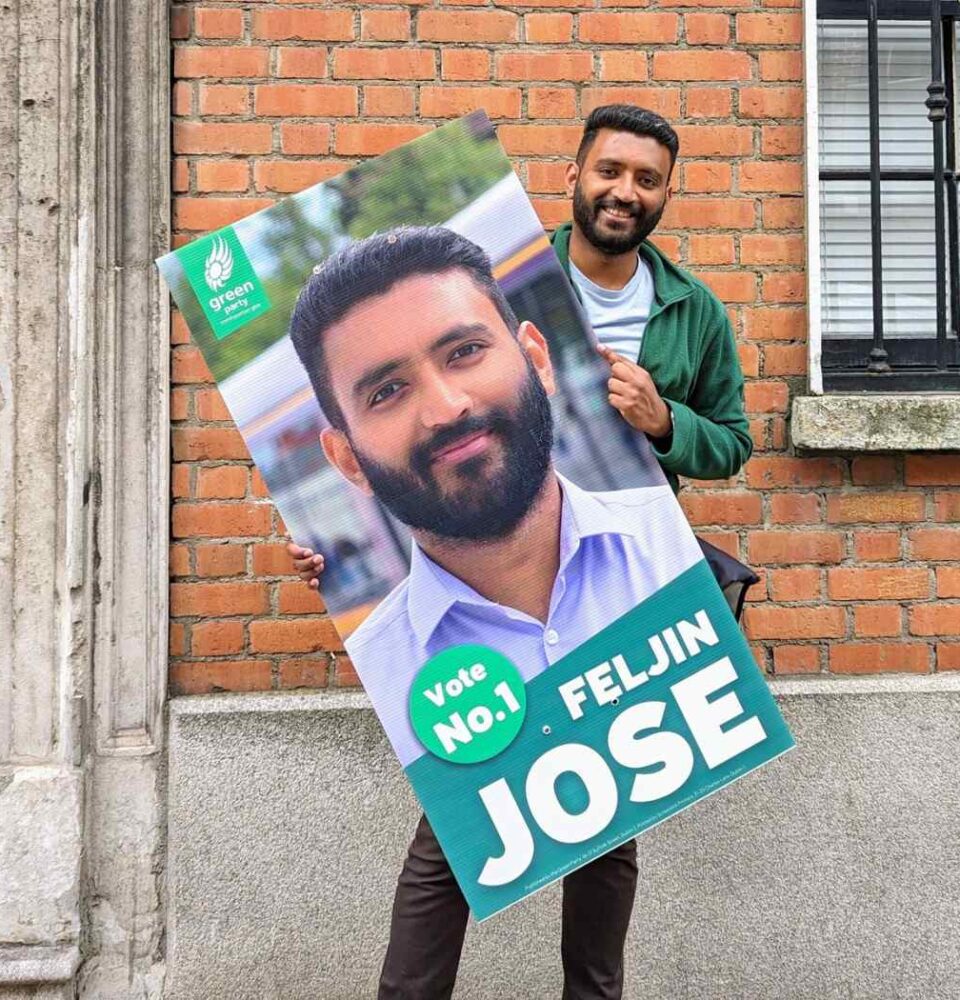
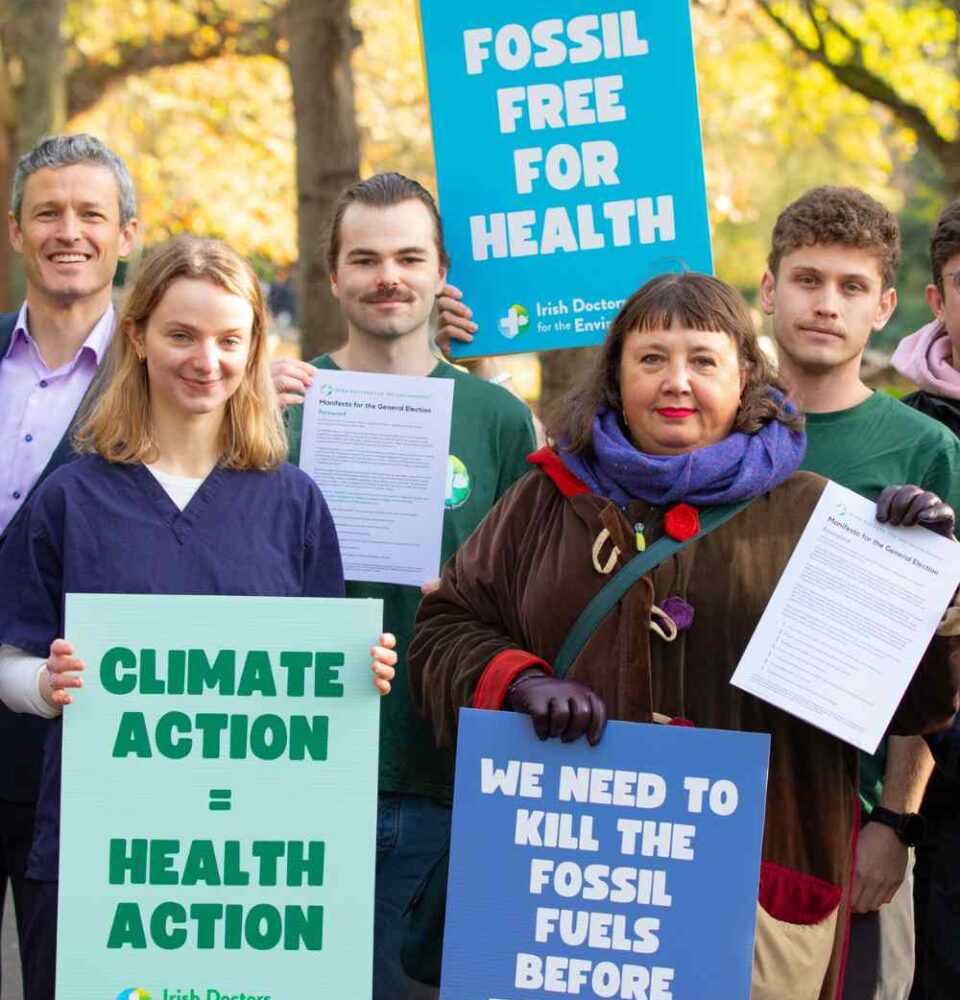
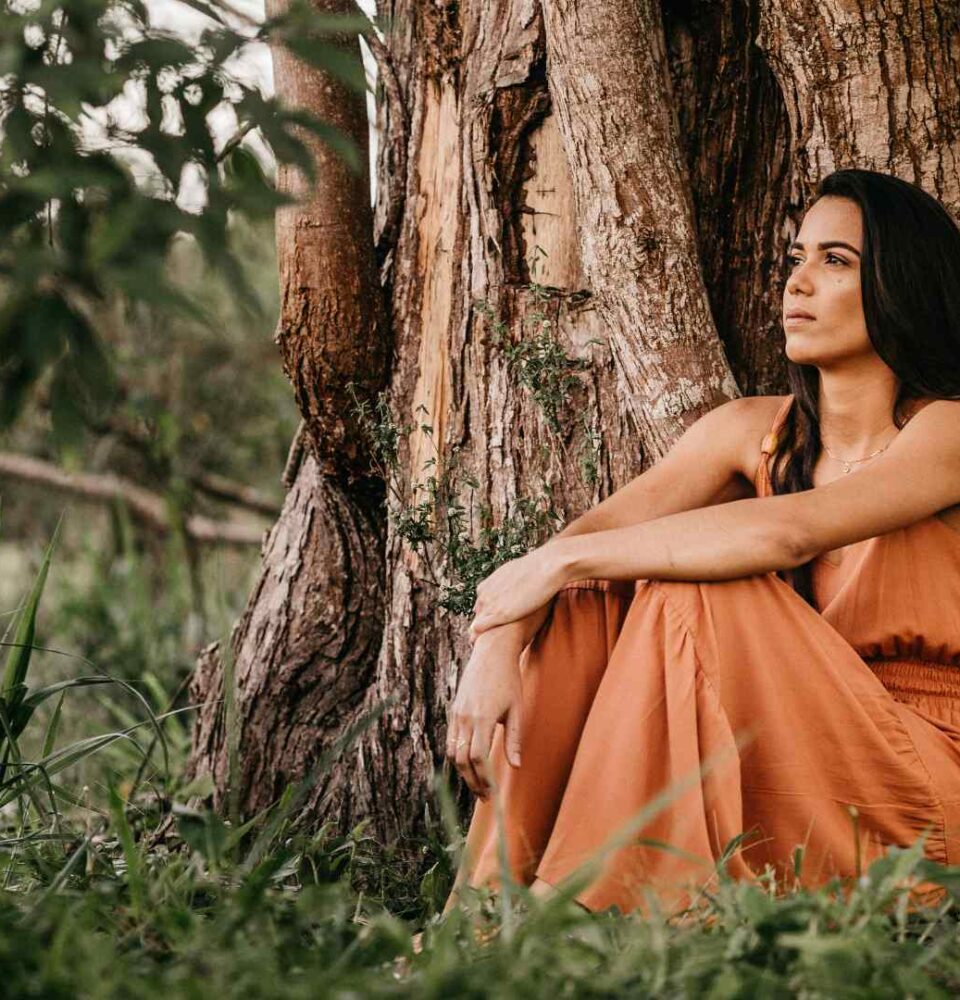

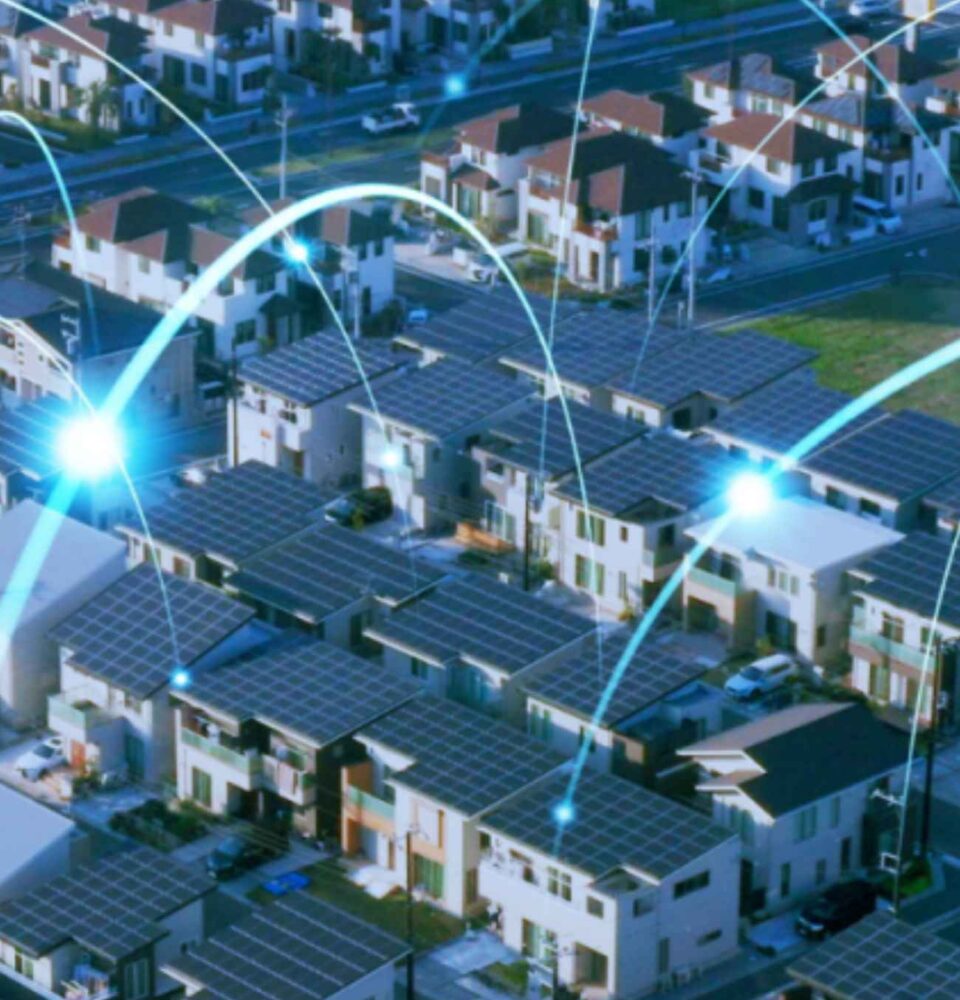
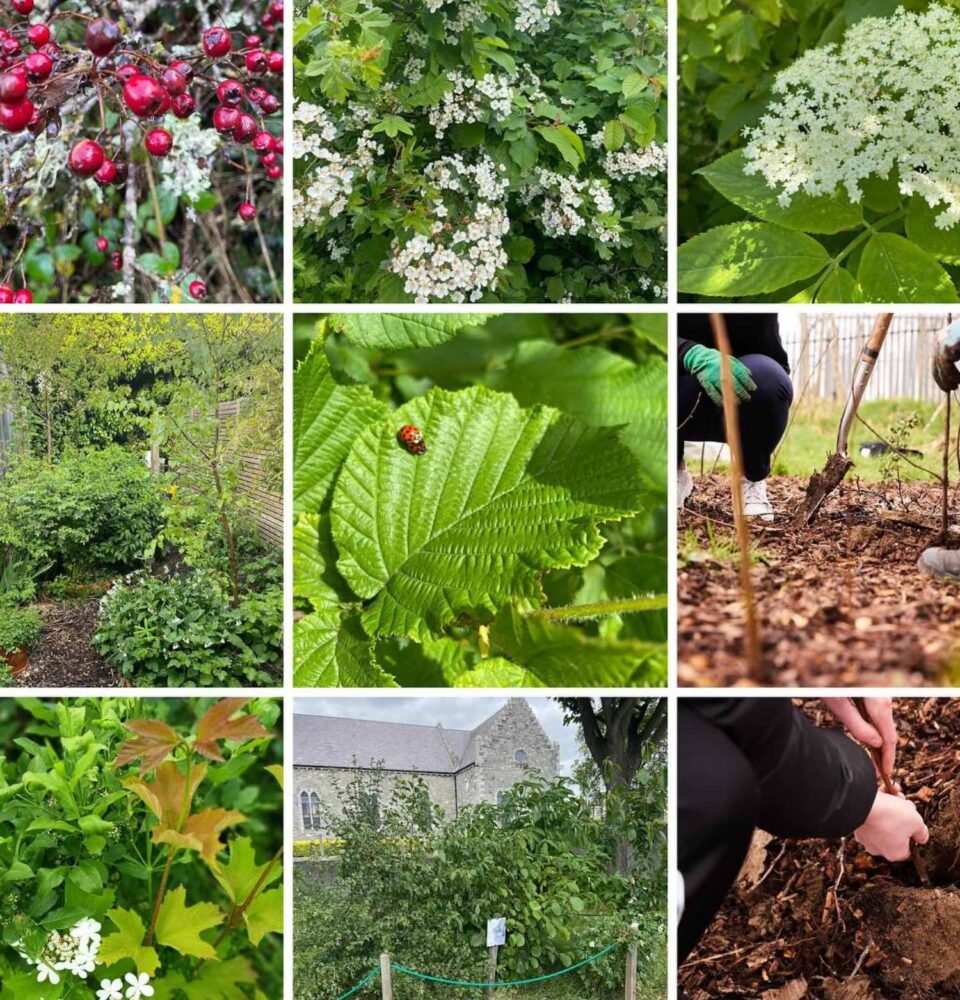




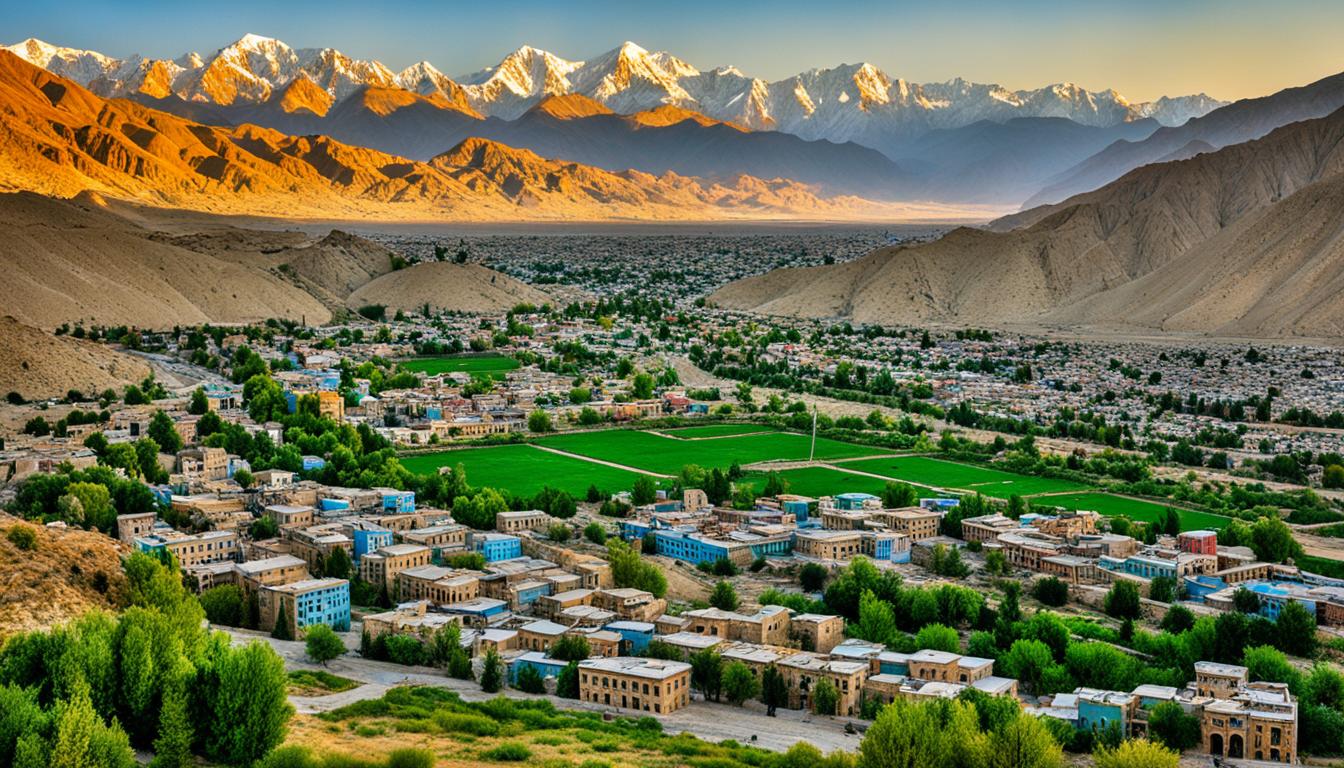

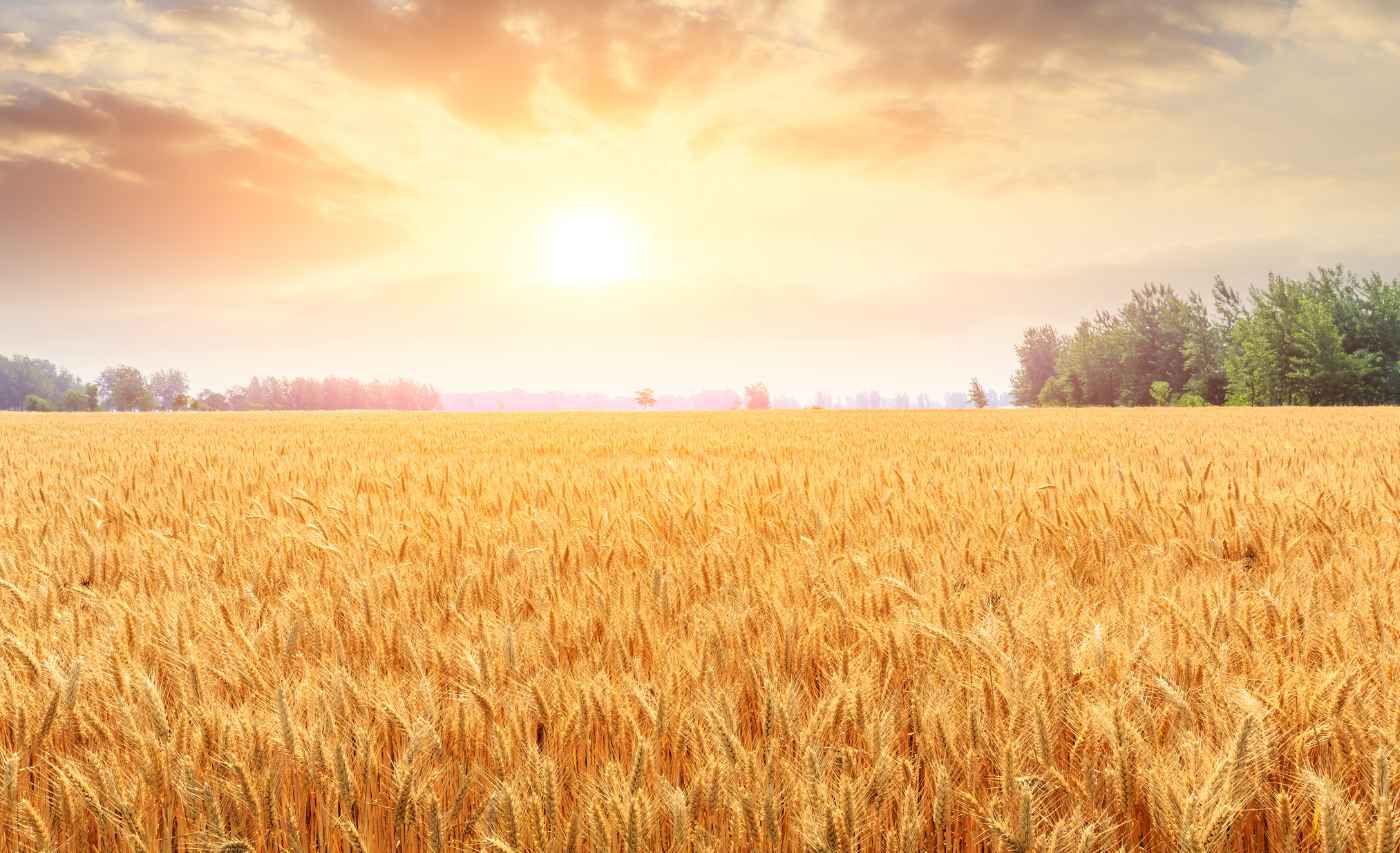
Everest: The Power of Nature: 8 Big Lessons from Everest
5 months ago[…] Discover more in the Sustainable Snapshot of Cobh […]
Why Nature Credits Matter – With Brian MacSharry, European Environment Agency
3 months ago[…] A Sustainable Snapshot of Cobh: Local Action, Global Implications S4, E14 […]